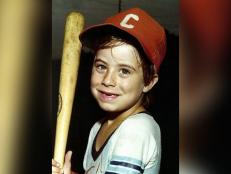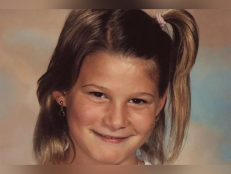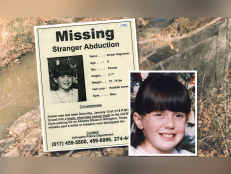5 Ways 'True Detective' Season 3 Is Like The West Memphis Three Case
In real life, the sleepy hamlet of West Memphis, Arkansas, was thrown into turmoil on May 5, 1993, when three eight-year-old boys — Steve Branch, Michael Moore, and Christopher Byers — were reported missing.
![Mahershala Ali in a trailer for True Detective Season 3 [HBO/YouTube (screenshot)]](http://investigationdiscovery.sndimg.com/content/dam/images/investigationdiscovery/crimefeed/legacy/2019/01/true-detective-season-3-preview-01112019.jpg.rend.hgtvcom.616.308.suffix/1547232054663.jpeg)
Mahershala Ali in a trailer for True Detective Season 3 [HBO/YouTube (screenshot)]
Missing children, a sleepy Ozark town turned upside down, and a long quest for justice — the new season of HBO's critically acclaimed series True Detective has a lot of similarities with the real-life case of the infamous West Memphis Three.
![Damien Echols, Jessie Misskelley, Jason Baldwin in 1993 [West Memphis Police Department]](http://investigationdiscovery.sndimg.com/content/dam/images/investigationdiscovery/crimefeed/legacy/2017/08/West_Memphis_Three_Mugshot.jpg.rend.hgtvcom.616.347.suffix/1537918284805.jpeg)
Damien Echols, Jessie Miskelley, Jason Baldwin [West Memphis Police Department]
Damien Echols, Jessie Misskelley, Jason Baldwin in 1993 [West Memphis Police Department]
1. The Missing Children
In True Detective, November 7, 1980 — described as “the day Steve McQueen died,” on a full-moon night, two children went missing in the fictional town of West Fingers, Arkansas.
In real life, the sleepy hamlet of West Memphis, Arkansas, was thrown into turmoil on May 5, 1993, when three eight-year-old boys — Steve Branch, Michael Moore, and Christopher Byers — were reported missing. The boys' bodies, found in a drainage ditch, had been stripped naked and tied up with their own shoelaces. Their clothing was found in the creek.
2. Teen Suspects
Episode one of True Detective introduces three local teen boys who bear a striking resemblance to the West Memphis Three: They have long hair, wear Black Sabbath T-shirts, and hang out in the Devil’s Den, according to JoBlo.com.
At the time of their arrests, Jessie Misskelley, Jr. was 17 years old, Jason Baldwin was 16 years old, and Damien Echols was 18 years old.
3. The "Satanic Panic"
According to Polygon, the West Memphis Three were associated with a phenomenon known as the “Satanic panic.” The website describes it as, "widespread fear-mongering hysteria that spread through the U.S. in the 1980s, in which authorities targeted schools and day-care centers with accusations of ritual-based abuse, sacrifice, and child prostitution."
Police officers James Sudbury and Steve Jones reportedly felt the crime had "cult" overtones, and Echols could be a suspect because of his alleged interest in occultism.
Echols said later that his dark persona was largely a result of teenage posturing, and that he always felt that he would be exonerated — and was shocked when he was found guilty of murder.
4. The Role Of True Crime Documentaries
Oscar winner Mahershala Ali plays a former detective, Wayne Hays, who finds himself going back to the same case that he investigated decades ago.
The show takes place in 1980, during a re-investigation of the case in 1990, and in 2015, when Hays seems to be struggling with memory loss.
Hays is the subject of a true-crime documentary series on the show, which presumably will bring the unsolved murders to a wider audience, and in the series his wife also wrote a book about the case.
In real life, the West Memphis Three were the subject of several documentaries and books that helped bring the case into the national spotlight. These include the Paradise Lost series and a number of books, including Devil’s Knot by Mara Leveritt (which was also turned into a film) and The Witches of West Memphis by George Jared.
5. A Family Affair
Despite the fact that authorities focus on connections to Satanic cults and sex trafficking rings, in many cases — both real and fictional — the culprit can be much closer to home.
In the show, the first few episodes hint that the children’s father, Tom Purcell — or perhaps a creepy uncle — could be hiding something.
In the West Memphis Three case, many observers believe that two of the boys' stepfathers, among other people of interest, were not investigated thoroughly enough.
Celebrities including Eddie Vedder, Johnny Depp, and Metallica have spoken out in support of the West Memphis Three over the years.
In 2007, DNA and forensic-evidence tests revealed no physical evidence at the crime scene that linked the three teens to the murders. The lack of evidence led to the Arkansas Supreme Court ordering new hearings.
Later, the West Memphis Three were freed using a rare "Alford plea," meaning that they were allowed to plead guilty without admitting that they had committed the crimes.
Now they are free — but are still fighting for official exoneration. In the show, as in real life, it appears that sadly it can take decades for families to get justice.
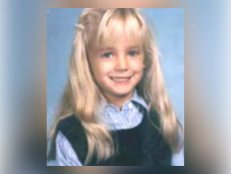

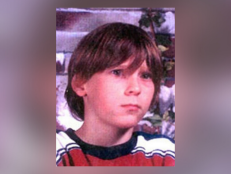
![Relisha's photo is shown age-progressed to 14 years. She was last seen on March 19, 2014. [via National Center for Missing & Exploited Children]](http://investigationdiscovery.sndimg.com/content/dam/images/investigationdiscovery/crimefeed/legacy/2021/05/relisha-rudd-missing-ncmec-052121.png.rend.hgtvcom.231.174.suffix/1621619534494.png)

